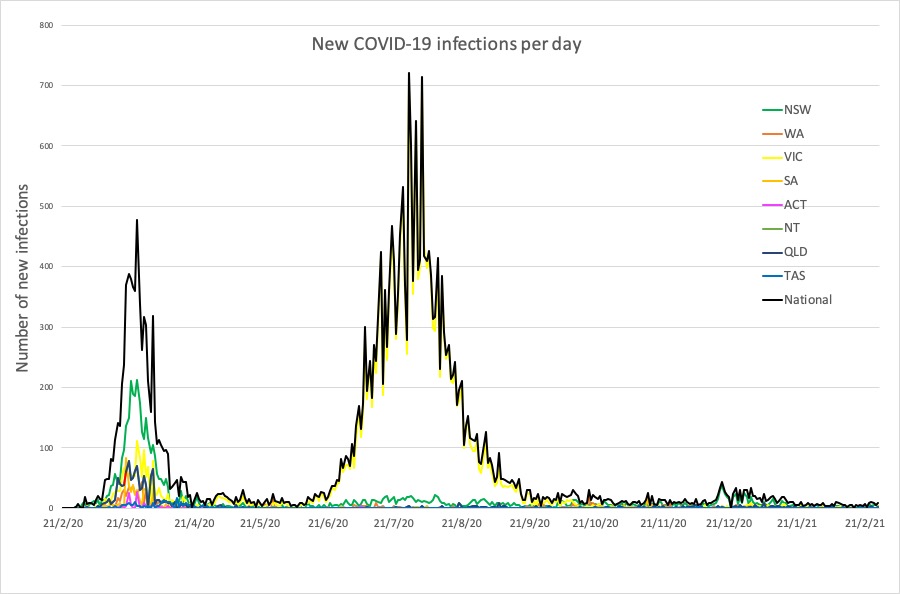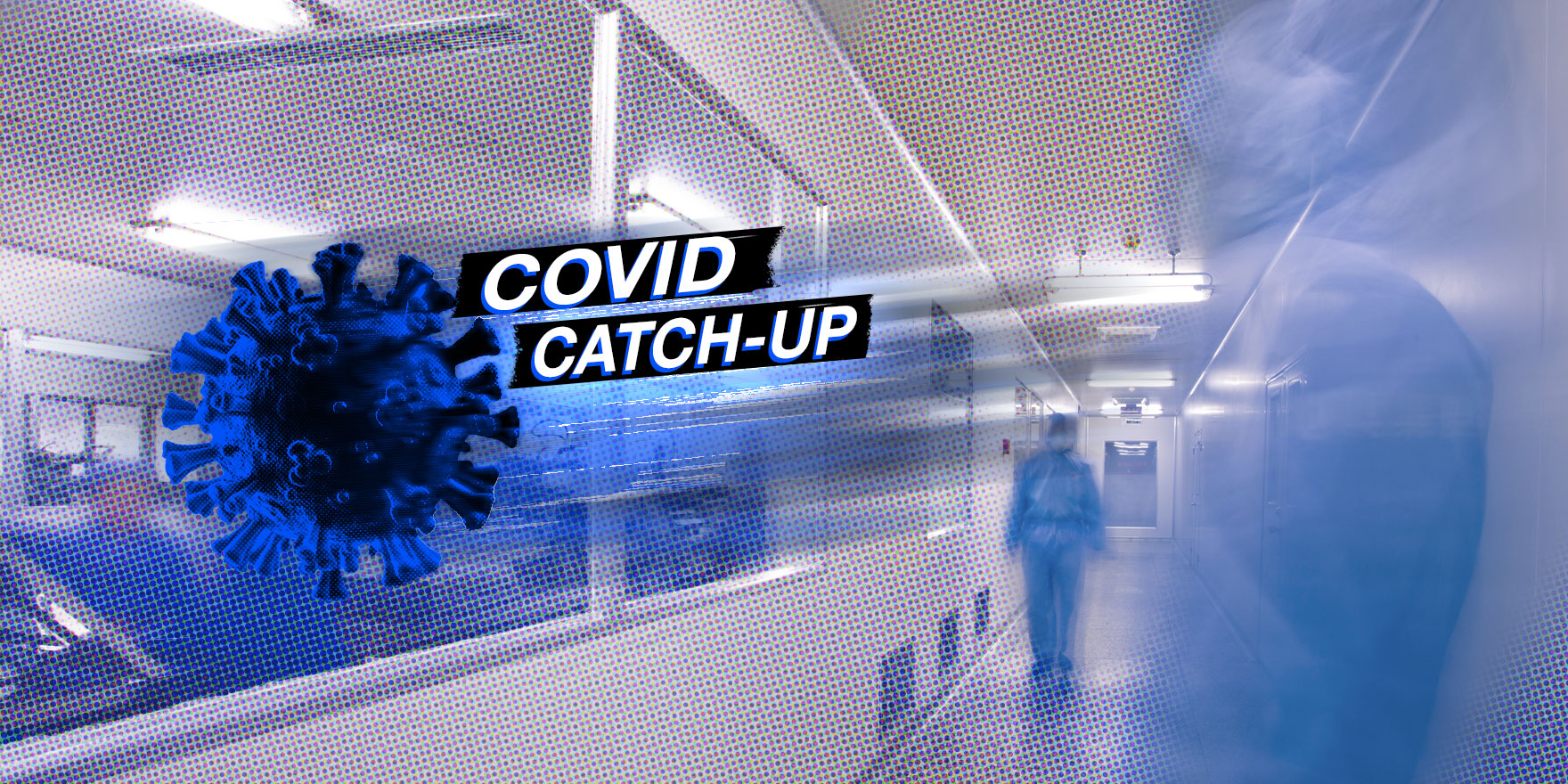And Australian mothers have some of the lowest vaccine acceptance globally.
Welcome to The Medical Republic’s COVID Catch-Up.
It’s the day’s COVID-19 news in one convenient post. Email bianca@biancanogrady.com with any tips, comments or feedback.
2 March
- Single dose of vaccine generates greater immune response among people with prior SARS-CoV-2 antibodies.
- Vaccine acceptance low among pregnant women and mothers in Australia.
- Canadians drank more but ended up in the ED less during the pandemic.
- Pandemic-related unemployment contributed to around 30,000 excess deaths in US.
- WHO issues strongest ‘no’ yet to hydroxychloroquine.
- Latest confirmed COVID-19 infection numbers from around Australia.
People who have previously been infected with SARS-CoV-2 appear to generate significantly higher antibody responses to a single dose of the vaccine compared to infection-naïve individuals.
A study published in JAMA gave a single dose of either the Pfizer/BioNTech or Moderna COVID-19 vaccines to 59 adult healthcare workers – 17 of whom were negative for SARS-CoV-2 antibodies, 16 who had had asymptomatic COVID-19 and 26 who had had symptomatic COVID-19.
They found that at day 7 and 14 after vaccination, antibody titres were significantly higher in the two COVID-19-exposed groups than in the non-exposed individuals.
“Given the ongoing worldwide vaccine shortages, the results inform suggestions for a single-dose vaccination strategy for those with prior COVID-19 or placing them lower on the vaccination priority list,” the authors suggested.
Pregnant women and mothers of young children in Australia have some of the lowest levels of vaccine acceptance in the world, on par with the United States and Russia, a survey has found.
According to a paper in Vaccine Confidence, the survey of more than 17,800 pregnant women and mothers of young children in 14 countries found the highest levels of vaccine acceptance – above 80% – in Mexico and India, and lowest levels – below 45% – for the US, Russia and Australia.
Overall, 53% of women were confident that an approved COVID-19 vaccine would be safe, and just over 60% were confident it would be effective.
The authors noted that women’s perception of risk from the COVID-19 vaccine in the US and Russia, which have had a high incidence of infection, was similar to that seen in Australia, which has had a low incidence.
“These results underscore that a high burden of disease alone may not provide sufficient motivation for pregnant women and mothers of young children to seek vaccination for themselves or their children,” the authors wrote.
While Canadians bought substantial more alcohol during COVID-19 lockdowns than before the pandemic, this did not necessarily lead to a substantial increase in alcohol-related emergency department presentations.
A paper in the Annals of Internal Medicine reported a 38% relative increase in alcohol sales in March 2020 compared to March 2019. However the average monthly number of alcohol-related emergency visits from March to June 2020 was 12% lower than the same period in 2019. Although given that emergency visits overall decline, the authors noted that alcohol-related presentations did not decline as much as other presentations, so there was a 13% relative increase in alcohol-related presentations.
“Despite increased alcohol consumption, some studies report shifts away from the harmful drinking that typically arises in social settings outside the home,” the authors wrote.
More than 30,000 excess deaths may be attributed to COVID-19-related unemployment in the United States during the pandemic, new research suggests.
Writing in the American Journal of Public Health, researchers described how they used existing hazard ratios for the association between unemployment and mortality, and applied these to unemployment data and mortality data during the pandemic.
The results of that analysis suggested around 30,200 excess deaths during the pandemic could be related to unemployment, but the impact was even higher among Black people, men, and those of lower education levels.
The World Health Organisation has issued its strongest recommendation yet against the use of hydroxychloroquine to treat COVID-19.
The latest update to WHO’s living guidelines for COVID-19 cites high certainty evidence that the drug has a small or no effect on mortality, admission to hospital or laboratory confirmed SARS-CoV-2 infection. There is however a probable increase in adverse events.
The panel responsible for the update said the drug is no longer a research priority.
Here are the latest confirmed COVID-19 infection numbers from around Australia to 9pm Monday:
National – 28,798 with 909 deaths
ACT – 118 (0)
NSW – 5180 (3)
NT – 105 (0)
QLD – 1331 (2)
SA – 616 (3)
TAS – 234 (0)
VIC – 20,481 (0)
WA – 913 (0)



